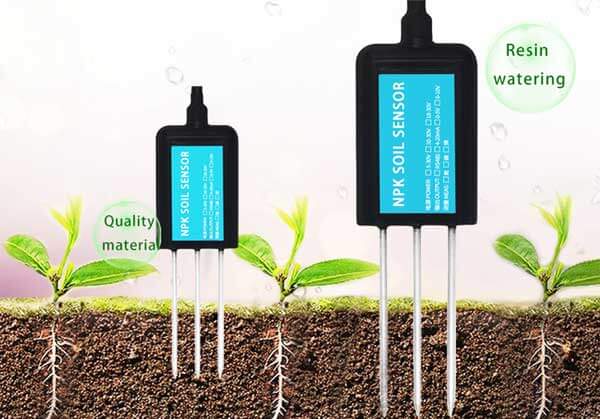Introduction: Agriculture has always been a vital industry, feeding the global population and driving economic growth. However, with the increasing need for sustainable and efficient farming practices, advancements in technology have become crucial. One such breakthrough is the emergence of soil sensors, revolutionizing agriculture and significantly impacting crop yield. This article will delve into the various ways in which soil sensors are transforming farming practices, boosting productivity, and ensuring environmental sustainability.

Understanding Soil Sensors:
Soil sensors are devices designed to measure and monitor various parameters in the soil, including moisture content, temperature, nutrient levels, and pH levels. These sensors provide real-time data, enabling farmers to make informed decisions and optimize crop growth.
Precise Irrigation Management:
Water availability is a critical factor influencing crop yield. Traditional irrigation practices often rely on predetermined schedules or manual assessments, leading to inefficient water usage and potential crop stress. Soil sensors, on the other hand, allow farmers to monitor soil moisture levels accurately. This data, combined with weather forecasts, helps optimize irrigation schedules, ensuring that crops receive the right amount of water at the right time. Precise irrigation management not only conserves water but also minimizes the risk of overwatering or underwatering, leading to healthier plants and increased yields.
Nutrient Optimization:
Nutrient management is essential for healthy plant growth and high crop productivity. Soil sensors play a crucial role in determining the nutrient requirements of crops. By measuring nutrient levels in the soil, farmers can precisely apply fertilizers and make necessary adjustments. This targeted approach reduces the risk of nutrient leaching, minimizes fertilizer waste, and promotes optimal nutrient uptake by the plants. Consequently, soil sensors aid in enhancing nutrient efficiency, reducing environmental pollution, and maximizing crop yield.
Detecting Soil Health and Disease:
Soil health is fundamental to successful farming. Soil sensors provide valuable insights into the overall health of the soil, enabling farmers to identify potential issues that may affect crop productivity. These sensors can detect soil salinity, pH imbalances, and the presence of harmful pathogens. With this information, farmers can take proactive measures to mitigate problems, such as adjusting soil pH, implementing crop rotation, or adopting targeted disease management strategies. By addressing soil health and disease concerns promptly, farmers can prevent crop losses and maintain high yields.
Site-Specific Crop Management:
Not all areas within a farm exhibit uniform soil conditions. Soil sensors allow for site-specific crop management, also known as precision agriculture. By deploying sensors across various locations, farmers can gather site-specific data on soil properties, moisture levels, and nutrient content. This information helps farmers tailor their cultivation practices, such as adjusting seed rates, applying fertilizers selectively, or implementing variable rate irrigation. Site-specific crop management optimizes resource allocation, reduces input costs, and maximizes yield potential.
Data-Driven Decision Making:
The real-time data provided by soil sensors acts as a powerful tool for data-driven decision making in agriculture. Farmers can collect and analyze data over time, identifying trends, patterns, and correlations. This information helps them optimize farming practices, improve efficiency, and make strategic decisions. Whether it is adjusting irrigation schedules, fine-tuning fertilizer applications, or implementing pest and disease management strategies, data-driven decision making ensures that farmers can achieve maximum crop yield while minimizing waste and environmental impact.

Conclusion: Soil sensors have revolutionized agriculture by providing valuable insights into soil conditions, enabling precise irrigation management, optimizing nutrient applications, detecting soil health issues, facilitating site-specific crop management, and empowering data-driven decision making. These advancements not only result in increased crop yield but also promote sustainable farming practices. As we continue to face global challenges such as population growth and climate change, the adoption of soil sensors will be critical in ensuring food security, resource conservation, and the long-term sustainability of the agricultural industry.
